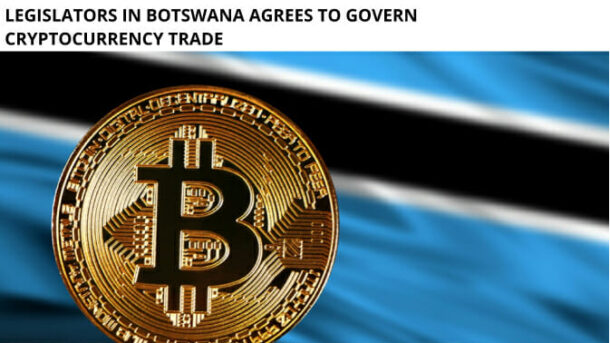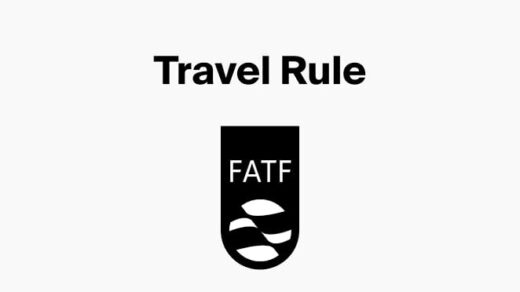In a proactive move to regulate the crypto asset market, Botswana has enacted the Virtual Assets Act, providing a comprehensive framework for the sale and trade of virtual assets. This groundbreaking legislation covers a range of aspects, including the licensing of virtual asset service providers and issuers of initial token offerings, and aims to address issues related to money laundering and investor protection. The Act, which came into effect on February 25, 2022, is poised to shape the crypto landscape in Botswana.
Aligning with Global Trends
This development in Botswana aligns with a global trend that seeks to bring digital currencies and associated activities under regulatory oversight, creating a safer and more transparent environment for crypto enthusiasts and investors.
The Virtual Assets Act in Botswana is a comprehensive legislative framework designed to regulate and bring accountability to the burgeoning crypto asset market. By licensing virtual asset service providers, issuers of initial token offerings, and other businesses, the government aims to foster transparency, protect consumers, and prevent illicit activities, such as money laundering and market abuse. This regulatory milestone reflects Botswana’s commitment to embracing the digital financial landscape while ensuring that it operates in a responsible and secure manner.
Mitigating Proliferation Risks and Ensuring Proper Infrastructure
A core element of the legislation focuses on companies or entities that issue tokens. According to Part III of the Act, the Regulatory Authority may grant a license to these entities if they can demonstrate that they possess the necessary infrastructure and resources to operate as virtual asset service providers or issuers of initial token offerings. Applicants must also meet the “fit and proper” criteria, ensuring that they adhere to the standards set forth in the Financial Intelligence Act.
This regulatory approach serves the vital purpose of ensuring that companies operating within the cryptocurrency space have the required capabilities to provide secure and trustworthy services while mitigating the potential for market abuse or exploitation.
Transparency and Informed Decision-Making
The Act also mandates that license holders must issue a white paper containing full and accurate information for potential purchasers of virtual assets and initial token offerings. This requirement is a commitment to transparency and consumer protection. It empowers investors to make informed decisions about their participation in the cryptocurrency market, knowing that they have access to detailed information about the assets they’re considering.
Motivations and Global Implications
Botswana’s move to regulate crypto assets coincides with similar actions by countries such as the United States, South Africa, Russia, and China, which are either considering or implementing stricter cryptocurrency regulations. The motivations behind Botswana’s decision are manifold. Some experts suggest it might be linked to Botswana’s removal from the Financial Action Task Force’s (FATF) graylist in October 2021. The FATF had previously identified deficiencies in Botswana’s anti-money laundering (AML) and counter-terrorist financing (CTF) practices. However, Botswana’s concerted efforts to address these issues led to its removal from the list later that year.
Crackdown on Unregistered Crypto Players
In addition to the Act, Botswana has been actively taking measures to curb unregistered crypto businesses. The Botswana Non-Bank Financial Institutions Regulatory Authority (NBFIRA) has intensified efforts to shut down unlicensed crypto operations within the country. In a recent development, unregistered crypto service provider FS Global Properties Limited Botswana was ordered to cease its operations.
Since the Virtual Assets Act came into effect in February 2022, NBFIRA has been vigilant in enforcing the law. The action taken against FS Global Properties Limited Botswana sends a clear message that unlicensed virtual asset service providers are operating illegally, and the regulator is determined to take swift action against them.
Legal Consequences and Warnings
The Virtual Assets Act establishes penalties for unlicensed operators, including fines of up to P250,000 or imprisonment for up to five years, or both. NBFIRA has also issued warnings to the public, cautioning against conducting business with unlicensed virtual asset service providers or entities operating within the non-bank financial institutions sector. The regulator emphasizes the importance of maintaining confidence and the industry’s reputation by ensuring that companies meet minimum capital requirements to operate as viable businesses.
Conclusion
Botswana’s decision to regulate crypto assets reflects a growing awareness of the need to address the challenges and opportunities presented by digital currencies. The government’s intention to introduce regulations that promote financial stability, mitigate money laundering risks, and protect investors is a significant step in this direction. The Virtual Assets Act and NBFIRA’s active enforcement efforts demonstrate Botswana’s commitment to creating a secure and transparent environment for cryptocurrency trading.
As the Act has ushered in a new era for the crypto asset market in Botswana, it underscores the nation’s dedication to fostering a dynamic and secure environment for digital finance. It aligns with a broader trend towards increased regulatory oversight in the crypto space, reflecting a commitment to safeguarding financial systems and protecting investors. Botswana’s proactive approach to crypto asset regulation continues to shape the future of digital finance in the country, providing a secure and compliant ecosystem for crypto enthusiasts and investors alike in the coming years.




